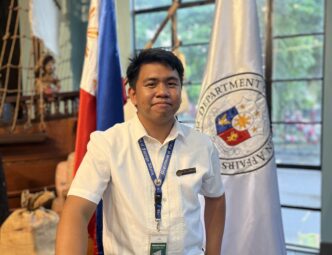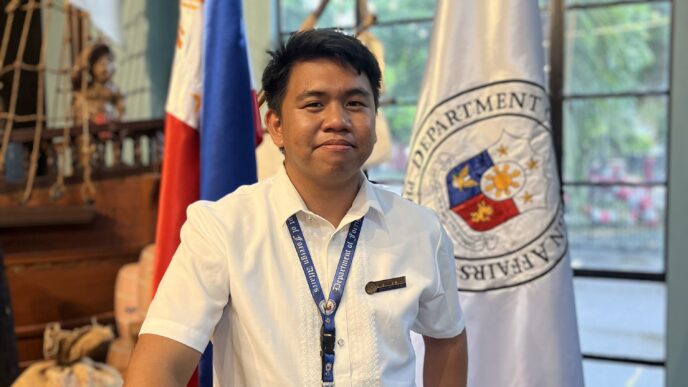By Paean Dyree M. Taripe
Whenever I think of democracy, I think of responsibility.
In a democratic nation like the Philippines, one of our most sacred responsibilities is the right to vote and be voted for. As Carrie Chapman Catt once said, “The vote is a power, a weapon of offense and defense, a prayer.” Indeed, casting a vote is a prayer for good governance, national flourishing, and the upholding of the rule of law and human rights.
As the May 2025 elections draw near, the nation prepares once again to elect its local and national leaders. We are faced with the familiar cycle of campaign promises, political theatrics, and increasingly heated discussions, both online and in person.
In the context of our faith, this season intersects powerfully with the recent Holy Week, and with scriptural reflections on Jesus’s resurrection, particularly his appearances to Thomas, the doubter, and Saul, the former persecutor. Their stories resonate with our present challenge: how do we, as Christians, confront doubt, disbelief, and even hostility within our own communities?
Every election season divides the country, but the division feels deeper and more destructive now than ever before—fueled by hate rhetoric, fake news, and online propaganda. Friendships have been broken, families have been strained, and even the church is not immune from these fractures. While some church leaders boldly stand for truth, others remain silent, fearing backlash or member attrition.
This isn’t just a Philippine issue. In the United States, the polarization of pulpits became evident even before the January 6 Capitol insurrection—an event that many evangelical congregations still struggle to acknowledge, despite overwhelming evidence. What’s alarming is that some Christians have become key distributors of conspiracy theories, like QAnon, or climate change denial, undermining public trust and distorting the message of Christ.
Here in the Philippines, troll farms and misinformation networks continue to spread lies that manipulate voters. Some Christians fall victim to these narratives, which makes the church’s role in truth-telling and spiritual formation even more urgent.
The real challenge is this: how can we lead our communities toward truth in love? How can we guide the “Thomases” in our midst who doubt everything they hear? How can we inspire the “Sauls” to transform into “Pauls” through faith and conviction?
As my uncle, former pastor of Cosmopolitan Church of Hawaii, reminded me, ministering across political divisions has always been part of a church worker’s calling. But in recent years, this has taken on a new intensity. The pandemic, misinformation about vaccines, and contested election results have all contributed to a crisis of trust—even within the church.
The fear of losing members and speaking truth to power has become a moral dilemma for many of our church workers. And yet, as Kaitlyn Schiess, author of The Liturgy of Politics, reminds us:
“We’re the people who should be able to say when some things are true and false… To act as if a totalizing narrative about good and evil is not a threat to the gospel and the Christian community—is to forget who we are.”
I worry about this ongoing division, the erosion of truth, and the rise of confirmation bias. But I also believe in the possibility of restoring unity through respectful and honest dialogue.
As the elections near, may we remember: while our votes may differ, we are called to the same truth—the truth that unites rather than divides, that is grounded in justice, love, and repentance, and that reflects the life of Christ, whom we are called to follow.
Let us pray for wisdom and discernment as we choose our leaders, and may Via, Veritas, Vita—The Way, the Truth, and the Life—be with us all.










